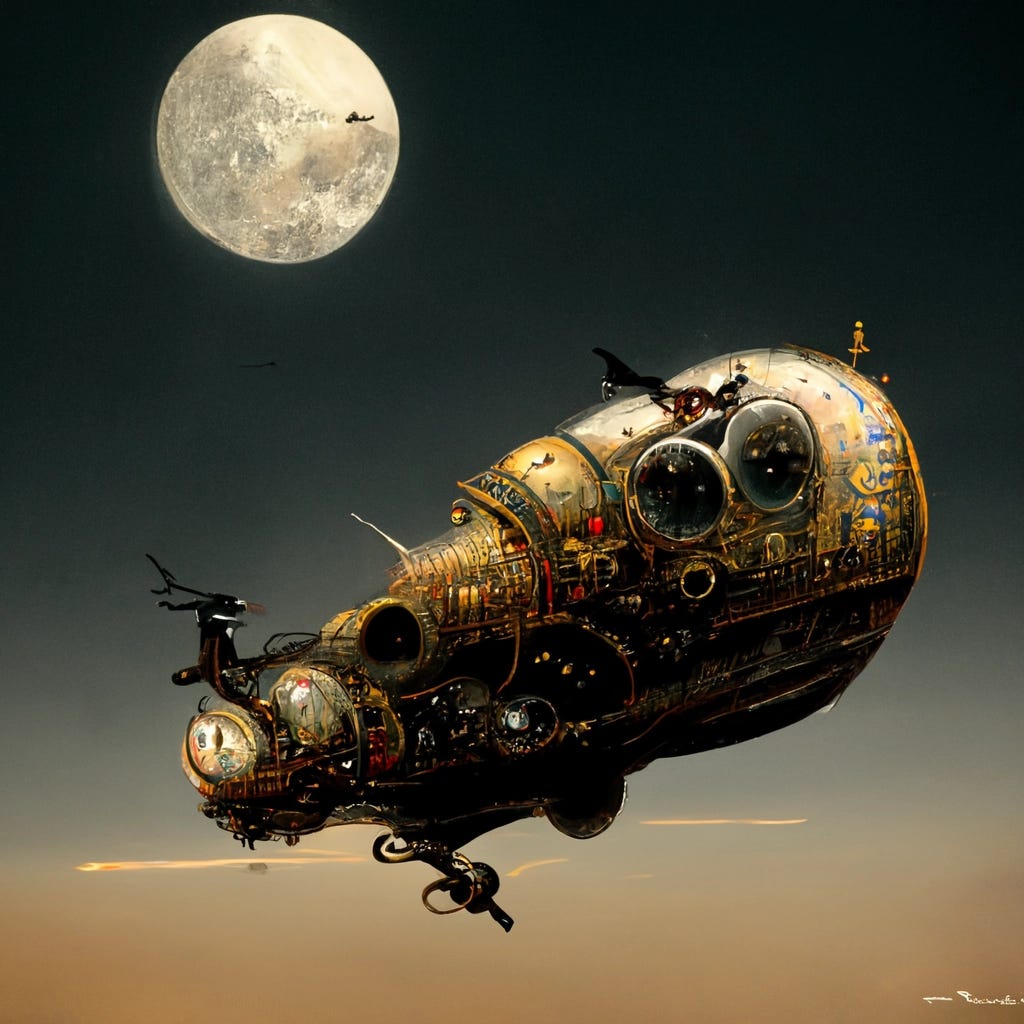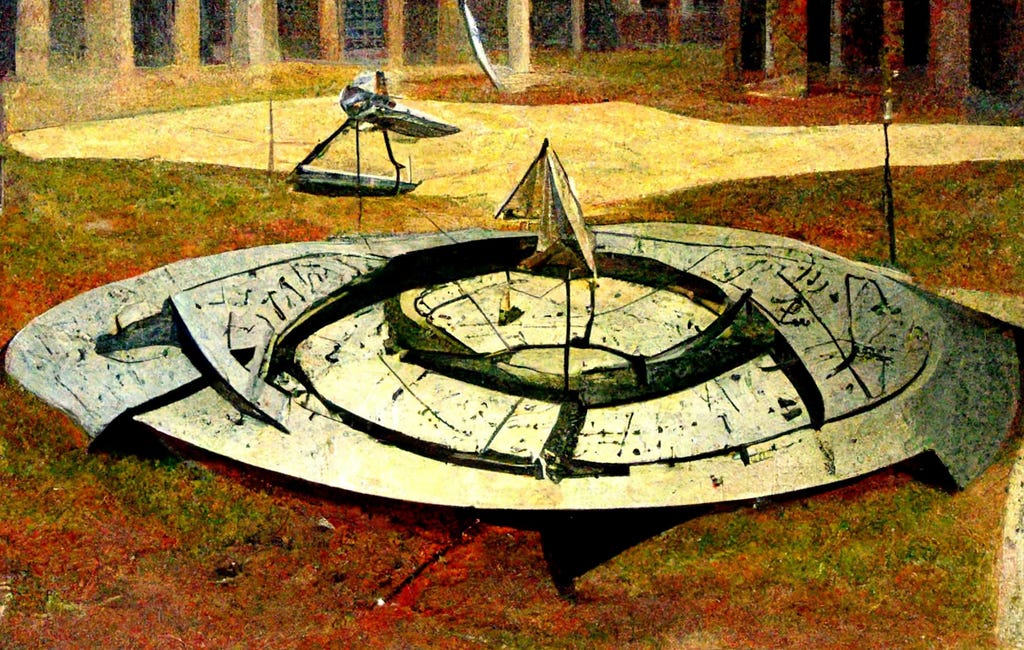Marie tugged Claude’s sleeve, yanking him to the porthole. “Look at the German spaceship!”
The Neuschwanstein, a perfectly round brass and copper sphere with gold bolts along the exterior, eclipsed the sun. A fiery yellow corona surrounded the vessel.
Marie pushed away from the porthole, floated to the control bay, and turned two valves counterclockwise, releasing steam jets from the aft of their blimp-shaped craft. Pipes whistled and groaned as the vapor wended along the conduits to the exhausts. She pulled a lever to reorient their sail toward the sun, which was no longer obscured by the Neuschwanstein.
Claude shoveled coal into the furnace. Their ship, the Samuel de Champlain, shuddered from the sudden surge, but the welds and screws held fast.
“Will we reach the Moon before the Germans?” he asked.
“Yes, without question.”
“And the Americans?”
Marie twisted the telescope’s eyepiece as she peered into the void. Despite its distance, Marie could make out the distinctive battleship shape of the American spacecraft, with its tall steam stacks and even taller sail masts. The ship’s faux gun turrets pointed straight ahead. “They're 10,000 kilometers behind us.”
“The Americans always have to build the biggest.” Claude released a wry laugh. “This time, it didn’t work out for them because bigger is slower.”
Being first to the Moon will make France the envy of the world. More importantly, it will give France exclusive property and mining rights to the Moon's unlimited cheese. The Samuel de Champlain will plant the French flag on the moon, followed by dozens of cargo ships.
Claude ran his hand along his chin. When they’d left Earth eleven days ago, he’d been clean-shaven, but now his face felt like his poodle’s hair. He glanced at the calendar on the panel above the ship’s main controls. Today was December 6, 1899. If all went well, he’d be home in time to celebrate the new century with Marie and their two daughters.
Claude aimed his sextant at Earth, the sun, and the Moon. With the practiced nonchalance of a circus performer, Claude juggled his sextant, slide rule, fountain pen, and notebook, quickly scribbling his calculations. “Turn three degrees to port. That will be our last course correction,” he told Marie.
Marie pulled down two brass levers on the instrument wall and raised a third lever three-quarters high. She spun the handwheel two complete turns to the left.
Claude shifted his eyes toward the bottle of red wine on the marble-topped rectangular rocaille console table on loan from the Palace of Versailles for this historic mission. His taciturn lips transformed into a smile.
“Remember, we’re saving that for when we collect the first batch of cheese,” she said. “Have patience.”
“Of course. I can wait.” He gently squeezed Marie’s hand. “Anything for you, mon amour.”
A salty, fermented aroma with notes of black pepper alerted Claude that they were within the Moon’s gravitational range. He wrinkled his nose. “Do you smell that? The Moon smells more like brie than camembert. It’s not what we were told.”
Marie tilted her head back and sniffed. “You’re right. The Académie des sciences made an error estimating the Moon’s density.”
Claude shuddered, and his face turned ghostly pale. He picked up the bottle, traced his fingers across the gothic Nuits-Saint-Georges lettering, and rotated it so the label faced Marie. “We brought the wrong wine.”
If you liked The Big Cheese, I think you’ll enjoy my story How Hallie Discovered Time Travel.






"Being first to the Moon will make France the envy of the world. More importantly, it will give France exclusive property and mining rights to the Moon's unlimited cheese."
The humor is strong with this one, young Skywalker.
I almost blew coffee out of my nose when I laughed at the end. I loved it.